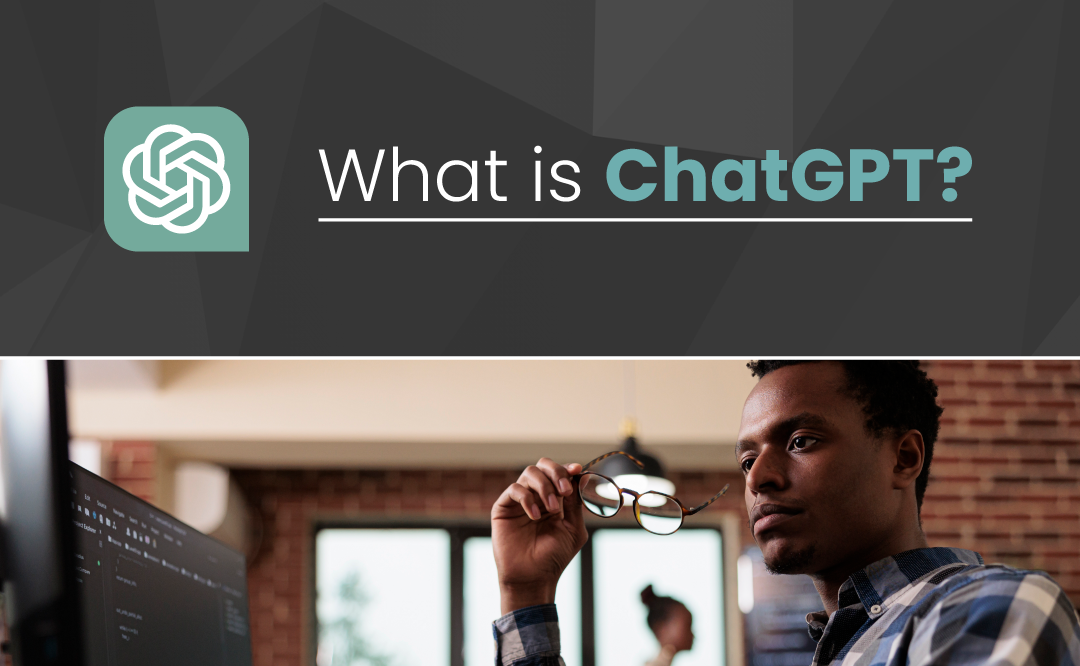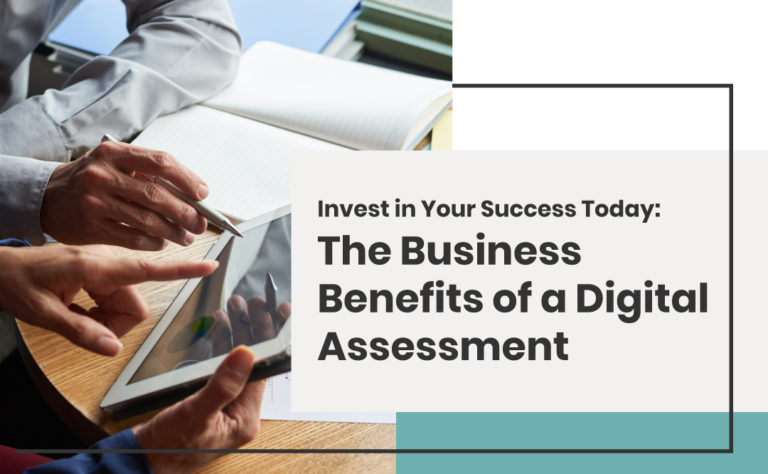Unless you’ve been under a sleeping spell for the last few months, you’ve probably heard of ChatGPT and maybe even tried it once or twice. Why the nod toward fairy tales? Well, depending on who you talk to, ChatGPT is either the handsome prince here to rescue humanity and make life easier or the wicked sorceress ready to wipe us all out.
It’s easy to understand the promise and worry of this advanced language model developed by OpenAI. So far it seems like it’s taking over the world. Though ChatGPT only launched in November 2022, it gained 100 million users in just 3 months, quickly becoming the fastest-growing ‘app’ of all time, even surpassing TikTok.
With so much talk about ChatGPT, it’s hard to discern what’s fact and what’s fallacy. For business, ChatGPT is said to help companies evolve quicker, stay ahead of their competition, enhance customer experience, and streamline operations. If you’re like a lot of people, you probably have questions when it comes to ChatGPT. In this blog, we will answer some of them, including what ChatGPT is (and isn’t), what it could mean for your business, and what to look out for when using it.
What is ChatGPT?
ChatGPT is a state-of-the-art language model powered by artificial intelligence (AI) and machine learning. It leverages a vast amount of data—trained on 300 billion words and 570GB of text data—to generate human-like and contextually relevant text-based conversations. Mimicking human conversation, it can provide valuable information, insights, and support to users in a wide range of domains.
Fun Fact:
Note, that we used the word “mimicking” above. ChatGPT only mimics what’s been input and responds using reinforcement learning from human feedback. It’s learning, but not thinking.
What is ChatGPT used for?
ChatGPT has a wide range of applications. It can be used for virtual assistants, customer support chatbots, content generation, language translation, tutoring, brainstorming ideas, and much more. Its versatility allows it to adapt to various industries and contexts.
For technology solution providers, ChatGPT’s key applications include:
- Sales Support: Use ChatGPT as a virtual sales assistant to engage with customers, answer product-related questions, and provide tailored recommendations based on their needs and preferences.
- Technical Support: Enhance your customer service to provide instant troubleshooting assistance, resolve common technical issues, and guide customers through the setup and configuration process.
- Product Knowledge: Expand your product knowledge base, providing customers with information about your offerings, specifications, and compatibility details.
- Pre-Sales Engagement: Engage with potential customers through chatbots, offering personalized and interactive experiences to guide them through the sales funnel, address concerns, and facilitate informed purchasing decisions.
Why is ChatGPT important?
ChatGPT represents a significant milestone in the development of conversational AI and how that pertains in the tech-driven landscape.
- Enhances the user experience by providing instant and accurate responses to foster positive interactions and increase customer loyalty.
- Increases efficiency and productivity to handle a large volume of inquiries simultaneously, freeing up human resources to focus on more complex tasks.
- Reduces operational costs by minimizing the need for extensive human intervention in customer support and content generation processes.
- Helps you gain a competitive edge by enabling your team to brainstorm, develop, and innovate faster so you can offer cutting-edge technology solutions.
- Enables you to scale your support and sales operations seamlessly, ensuring consistent and efficient interactions across a growing customer ecosystem.
What is ChatGPT’s effect on industries?
The impact of ChatGPT extends to a variety of industries, including technology, healthcare, finance, and e-commerce. Through many of the use cases above, it is revolutionizing the way organizations operate and interact with customers. This has been both a blessing and a curse.
Several companies have banned its use internally due to potential data risks, including Apple, Amazon, Bank of America, JP Morgan Chase, and Verizon. In May of 2023, technology leader, Samsung banned the use of ChatGPT after employees inadvertently revealed sensitive information to the chatbot. Many companies have expressed concern that ChatGPT could be used to leak confidential information (accidentally or on purpose), such as customer data, trade secrets, or employee emails.
In July of 2023, the Federal Trade Commission opened an expansive investigation into OpenAI, to determine if the company ran afoul of consumer protection laws by putting personal reputations and data at risk.
Although ChatGPT is a powerful data source, it isn’t connected to the internet and its trained data is only up to September 2021. This means it doesn’t have access to the most up-to-date information which is important to remember, considering how fast information changes.
How can ChatGPT be used to benefit business?
ChatGPT’s potential for business relies on its need to continuously learn, so it needs human intervention in order to improve. This means you have to provide it with domain-specific data to boost its performance and accuracy, and ensure it stays up to date with the latest trends and industry-specific terminology.
To leverage it for your business, you should consider:
- Analyzing your business processes to identify areas where ChatGPT can add value, such as customer support, virtual assistants, content generation, or data analysis.
- Integrate ChatGPT into your existing systems and customize the model to align with specific industry requirements.
- Maintain a responsible and ethical approach when deploying ChatGPT, ensuring user privacy, avoiding biased responses, and setting clear boundaries to establish a reliable and trustworthy conversational interface.
What should we watch out for?
Remember that AI pulls from a vast array of resources and can’t determine what is true, fake, biased, prejudice, or just plain wrong. When using the tool, keep that in mind and thoroughly review every piece to determine if it meets your company’s ethical standards. The last thing you want is to post something and have it be highly offensive to your customers or prospects.
According to the developer, OpenAI, “ChatGPT has limited knowledge of the world and events after 2021 and may also occasionally produce harmful instructions or biased content.”
Was this blog written by ChatGPT?
No. The IMS360 writers’ team did use ChatGPT during the brainstorming process to gather information and pulled a few phrases. From there, they combined the AI responses with their own research and years of technology content creation expertise to write this very human-developed blog.
As one of them put it, “ChatGPT isn’t perfect nor is it magic. It’s just pulling information from a giant reserve, allowing for better-focused information gathering.” Another writer said, “It gives me some great ideas and a few phrases I can use, but after several attempts and a variety of prompts, what it came up with, though informative, was dry and uninspiring.”
Fairy tales can come true—sort of
Although ChatGPT is a breakthrough in AI-driven conversational technology and offers businesses a variety of opportunities to enhance customer experiences, streamline operations, boost sales, and drive business growth, it isn’t your business’s fairy godmother—transforming your business with a wave of a magic wand..
We suggest taking some time to explore the possibilities that ChatGPT offers your business, and discerning how it—like any new business application—can be used without compromising your brand, data, or reputation. Create clear processes and rules around its use and research what other companies are experiencing, both the good and the bad.
ChatGPT is just waiting for you to tell it what to do. It’s up to you to unlock its potential to help you drive business success.



